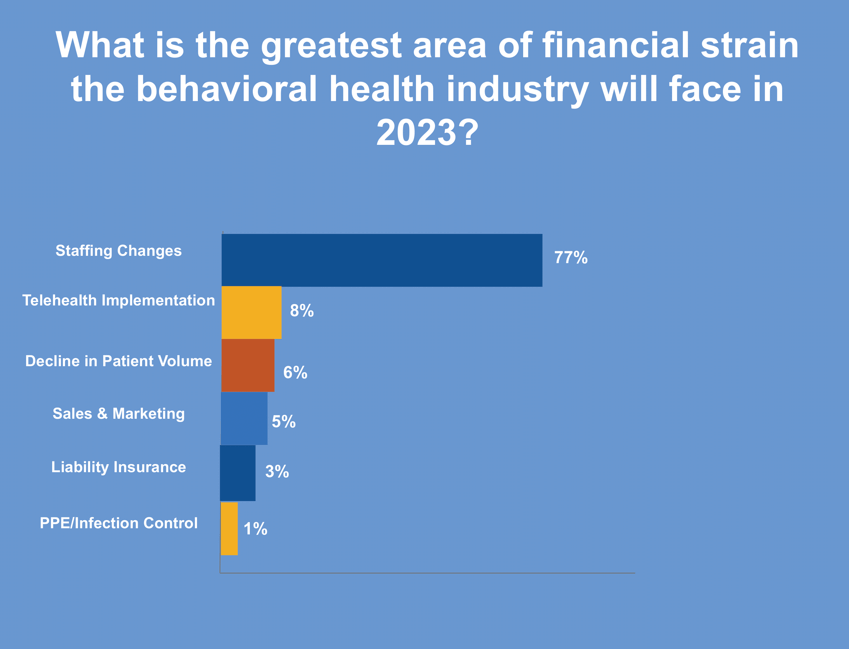Behavioral Health Staff Shortage is a National Crisis
While the demand for behavioral health services continues to grow post pandemic, the shortage of these providers continues to be a national crisis.
According to a survey done by KFF/CNN, 90% of the US adults say mental health is a crisis in the United States.
Patients call therapists, or psychiatrists only to be told that there is a waitlist. Clinicians who do accept new patients may only accept cash and take no insurance.
How bad is the shortage?
According to the American Public Health Association, these provider and staff shortages impact an estimated 132 million Americans, with more than 6,600 mental health practitioners needed to fill.
The demand for mental health services continues to rise, but the staffing shortage means that many of the patients are not getting the mental health services that they need. With 1 in 5 adults in America experiencing at least some type of mental illness, the staffing shortage is quite worrisome.

What is causing the shortage?
The staffing shortage is nothing new, but the pandemic has aggravated the problem with many providers leaving their job citing burnout as their primary reason, doing longer and extra administrative tasks along with caring for the patients can increase their workload.
Providers are exhausted working in this condition, causing delayed care to the patients.
Many states are coming up with strategies for expanding workforce, implementing telehealth, reducing administrative burden, and offering incentives to providers, but there is still a lot of work that needs to be done to increase access to care both in rural and urban communities.
Addressing the behavioral health staffing shortage
Healthcare systems are taking many initiatives to address the behavioral health staffing shortages. One effective approach to manage the staffing shortage is to implement a nurse triage solution for crisis calls.
Nurse triage offers 24/7/364 access to timely care, giving the providers a peace of mind.
Access Nurse uses the Schmitt- Thompson guidelines that include a number of behavioral health guidelines to provide behavioral management outcomes to callers who may be in crisis.
They determine the kind of treatment they will require and make those referrals.
Implementing a nurse triage solution ensures that your behavioral crisis calls are handled in a timely manner, and that the provider is notified of the call and the outcome.
AccessNurse continues to stand united with our healthcare partners to ensure quality patient care. If your organization needs support with behavioral crisis calls, click here Click here to learn more about how AccessNurse can help manage your behavioral health patient population.



